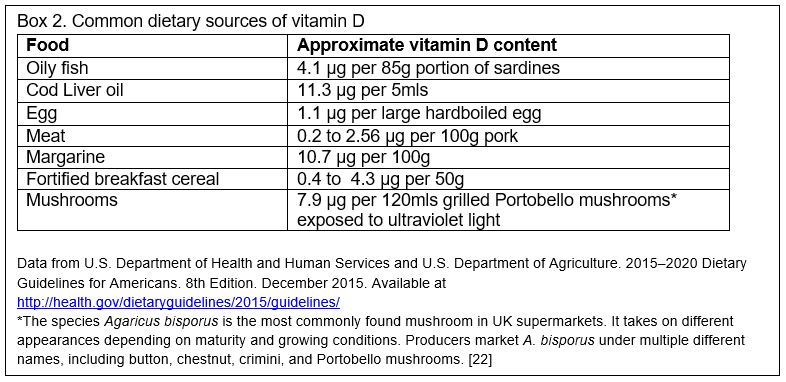This is the general recommendation for adults. To maintain a healthy vitamin D level between 50 and 80 most people need to take a daily dose of 4000 IU during the winter and 2000 IU during the summer.
 Vitamin D A Rapid Review Of The Evidence For Treatment Or Prevention In Covid 19 The Centre For Evidence Based Medicine
Vitamin D A Rapid Review Of The Evidence For Treatment Or Prevention In Covid 19 The Centre For Evidence Based Medicine
Vitamin A retinol.

What is the daily recommended amount of vitamin d. Normal vitamin D levels in the blood are 20 ngml or above for adults. Based on current research it seems that consuming 10004000 IU 25100 mcg of vitamin D daily should be ideal for most people to reach healthy vitamin D. Vitamin B2 riboflavin.
The usual amount of vitamin D in daily multivitamins is 600 to 1000 IU International Units. Folate B-complex 400 µg. Recommended daily intake 5.
Fifteen micrograms of vitamin D is the same as the 600 IU recommendation. Biotin in food and as a supplement. A microgram is 1000 times smaller than a.
Recommended Daily Allowances for Vitamins. Vitamin C ascorbic acid. The recommended adult vitamin D dosage is 400 IU 10 μg per day.
People aged 170 years should aim to get at least 15 mcg or 600 IU of vitamin D per day. Unfortunately its not possible to achieve sufficient levels of vitamin D through diet alone. That means that a packaged.
How much vitamin D to take. The recommended daily allowance of vitamin D is 600 international units for adults but infants children teens and the elderly may need more. It fits in with the overall vitamin D daily requirement of 600 international units or IUs the Food and Nutrition Board of the Institute of Medicine reports.
The main roles of vitamin D are contributing to normal absorption and utilisation of calcium and phosphorus in your body and maintenance of normal bones teeth and muscle function. Children from the age of 1 year and adults need 10 micrograms of vitamin D a day. Public Health England and the NHS recommend everyone takes a daily 10mcg supplement this is sometimes labelled on supplements as 400 IU International Units.
Vitamin B1 thiamin. For people that dont get enough sunlight however the daily. Sometimes though vitamin D is listed in micrograms.
Folate in food and as a supplement. Breast milk alone does not provide infants with an adequate amount of vitamin D. Vitamin D-3 doesnt have its own separate recommendation.
This is the daily amount recommended for the general population by government for general health and in. Babies up to the age of 1 year need 85 to 10 micrograms of vitamin D a day. But with many retailers selling different variations of high-strength vitamin D from 25mcg to 100mcg it can be tempting to reach for the highest number.
You should eat a varied balanced diet including foods which contain vitamin D2. Why take vitamin D supplements. For example the DV for sodium has been updated from 2400mg to 2300mg.
This is equivalent to 400 international units IU of vitamin D. This includes pregnant and breastfeeding women and people at risk of vitamin D deficiency. Men women and children over one year 10 micrograms.
This dose he says is too small to. Doses larger than 400 µg may cause anaemia and may mask symptoms of a vitamin B 12 deficiency. Those who are older or.
The recommended daily amount of vitamin D from foods is 600 to 800 international units 15 to 20 micrograms. Over dosage mg or µgd Biotin B-complex 30 µg.
